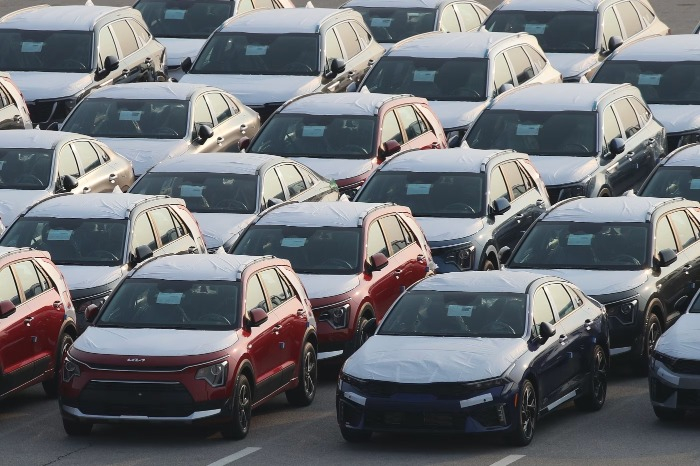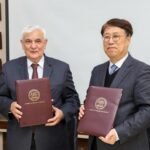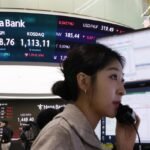
South Korea’s government has announced emergency-support measures for the country’s auto sector, as it rushed to ease the impact of U.S. President Trump’s tariffs.
The multi-billion-dollar aid package–set forth by the trade ministry on Wednesday to include more of financial support, tax breaks and subsidies for carmakers–came as the U.S. and South Korean governments continue to negotiate the tariffs.
Trump and South Korean acting President Han Duck-soo spoke on the phone on Tuesday and top trade negotiators from both sides are in Washington this week.
The 25% tariff on cars and auto parts imported to the U.S. that Trump announced will cause “significant” damage to South Korean automakers and parts manufacturers, the ministry said.
To prevent a liquidity crunch in the auto sector, the ministry said Wednesday the government would increase policy financing support, including cheaper loans, for local automakers by two trillion won to 15 trillion won, equivalent to $10.09 billion, in 2025.
Carmakers Hyundai Motor and Kia will also team up with financial institutions to form a separate one trillion won fund for auto-part makers to secure credit guarantees, bond issuance and borrowing easily, it said.
The government will also lower taxes on new car purchases to 3.5% from the current 5% temporarily until June, as well as raise subsidies for electric vehicles and extend the period of available subsidies by six months until the end of this year, it said.
Separately, the government will help Korean automakers expand export markets into non-U.S. developing economies in Africa, Latin America and Asia, where demand for vehicles has been growing fast.
South Korean acting President Han spoke with Trump Tuesday, in what U.S. president described as a “great call” in a post on Truth Social. “We talked about their tremendous and unsustainable Surplus, Tariffs, Shipbuilding, large scale purchase of U.S. LNG, their joint venture in an Alaska Pipeline, and payment for the big time Military Protection we provide to South Korea,” Trump wrote. “Their top TEAM is on a plane heading to the U.S., and things are looking good.”
South Korea earlier this week dispatched its top trade negotiator, Minister for Trade Cheong In-kyo, to Washington for tariff negotiations with U.S. Trade Representative Jamieson Greer.
South Korea’s car exports to the U.S. stood at $34.7 billion in 2024, accounting for 49% of its total auto exports, according to the ministry.
Oxford Economics economists said in a recent research note that the 25% automotive tariffs could cause South Korean car production to shrink about 7% and the repercussion would be felt beyond the auto sector.
“The impact is larger than suggested by bilateral trade data, because vehicles assembled in other countries before being shipped to the U.S. will also be affected, dampening domestic auto parts production,” Oxford Economics said. It added that reduced car production will hit other sectors such as basic metals in the supply chain.
“Carmakers could absorb some costs or divert shipments to other markets, but this will be increasingly difficult given the subdued global economy,” it noted.
By Kwanwoo Jun
Kwanwoo.Jun@wsj.com















